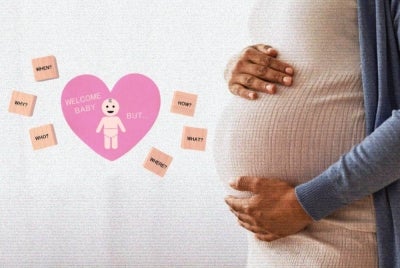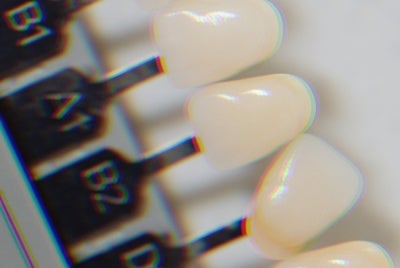Why autism in women often goes undetected
Unlike men, many women don’t get diagnosed until much later in life—often only after struggling with mental health issues like depression or eating disorders, which prompt doctors to dig deeper.

For years, autism has been mostly studied—and diagnosed—through a male-centric lens. But over the past two decades, awareness about how autism presents in women has grown, leading to a rise in diagnoses among girls and women who were previously overlooked.
Unlike men, many women don’t get diagnosed until much later in life—often only after struggling with mental health issues like depression or eating disorders, which prompt doctors to dig deeper.
Dr Tesini M. Paramannantha Valoo, a consultant psychiatrist at IMU Healthcare, explains that most autism screening tools in Malaysia are designed based on how autism appears in boys. This means the more subtle, masked traits commonly seen in girls and women often go undetected, leaving many to navigate life without the right diagnosis or support.
She added that some tools, like the Autism Diagnostic Interview-Revised (ADI-R), rely on recalling early developmental traits through interviews with caregivers, which is often not practical for adults being assessed later in life, making diagnosis for adults more difficult and sometimes leaving a few undiagnosed.
Dr Tesini further stated that psychiatrists diagnose autism based on the Diagnostic and Statistical Manual of Mental Disorders (DSM-5) criteria, which focus on persistent patterns in social communication and behaviour starting in early childhood. However, she said that the traits often present differently in females—masked behind social coping strategies, internalised anxiety, and a strong need for routine or control.
"As a result, many women are misdiagnosed with conditions such as borderline personality disorder, PTSD, OCD, or eating disorders, and may go through years of confusion and emotional distress," she said.
She added that without a proper understanding of how autism presents differently in women, especially those with average or high intellectual functioning, many continue to live without the right diagnosis or support.
WHY DIAGNOSIS IS IMPORTANT, EARLY OR LATE
"As a psychiatrist working closely with autistic adults, I’ve seen countless women spend years being misdiagnosed or misunderstood—often told they were 'too sensitive' or 'just dramatic.' Many share that they’ve always felt different but couldn’t explain why.
"The relief and self-compassion that come with finally receiving an accurate diagnosis in adulthood can be truly life-changing," Dr Tesini said.
However, she highlighted that a supportive and inclusive environment is also needed alongside the much-needed clarity from receiving a diagnosis, whether in schools, universities, or workplaces.
"Practical steps include clear communication, flexible work or study arrangements, sensory-friendly spaces, and allowing extra transition time between tasks or settings.
"Establishing mentor-mentee or buddy systems can offer peer-level emotional and social support, especially during periods of adjustment.
"Just as important are regular awareness and training programmes for teachers, lecturers, staff, and even students or coworkers—to promote empathy, understanding, and respectful collaboration between neurotypical and neurodivergent individuals," she said.
She further emphasised that institutions should ensure that a trained counsellor is available on-site and that there is a clear and responsive referral pathway to mental health professionals when deeper support is needed.
"Creating a psychologically safe zone—where autistic adults feel understood and can speak openly without fear of judgment—can make a profound difference," she said.
It is important that neurodiversity is respected, valued, and allowed to thrive beyond just providing basic accommodations for them.

COMMON MISCONCEPTIONS ABOUT AUTISM
Dr Tesini said that one of the most common misconceptions in Malaysia is that autism only affects children or that it always involves visible difficulties in speech, learning, or behaviour.
"Many still wrongly believe autism is caused by bad parenting, or that autistic individuals lack empathy—when in fact, many are deeply empathetic but express it differently," she added.
From her perspective as a psychiatrist, she said that while autism is clinically recognised as a neurodevelopmental condition, the way support systems are structured—such as the issuance of the OKU card under the “Masalah Pembelajaran” (learning difficulties) category—could be limiting.
"This label doesn’t always reflect the lived reality of autistic individuals, especially those who do not have traditional learning problems," she said.
She said that many autistic adults, particularly those diagnosed later in life or those with higher intellectual abilities, experience very real but invisible challenges—such as sensory overload, social burnout, or emotional regulation difficulties—yet fall through the cracks when it comes to receiving support or accommodations.
"Because the public often believes autism must be diagnosed in early childhood, those who receive a diagnosis later are sometimes dismissed or not taken seriously," she said.
"To change this, educators and policymakers must actively challenge outdated narratives by integrating more accurate, inclusive portrayals of autism into school curricula, national awareness campaigns, and professional development.
"Collaborating with autistic self-advocates, mental health professionals, and families can help build a society that sees neurodiversity not as a limitation but as a part of human variation worthy of understanding and respect," she said.
PROMOTE INCLUSIVITY
Meanwhile, special education specialist from Bridging Hope Autism Centre, Peggy Lam, said that many undiagnosed adults with ASD would eventually lead to getting bullied and stereotyped in school institutions or wherever they spend most of their time.
She said that they would also experience difficulties in fitting in due to constantly having to mask their true selves, leading to emotional outbursts, such as depression or other mental health challenges, before receiving a proper diagnosis and support.
In order to combat the gap in the autism community from lacking diagnosis, Peggy urged schools and communities to promote inclusion of differently-abled individuals by continuously raising awareness about neurodiversity.
Currently, many screening tools do not adequately cater to the community, leading to underdiagnosis in Malaysia, especially for women, which she deemed important to be gender-specific.
"Diagnosing females can be more challenging, as they often excel at masking their emotions and behaviours. This makes it more complicated to accurately diagnose their conditions when they are younger compared to males," she said when contacted by Sinar Daily.
Though the ways to get diagnosed are not as simple as a blood test, social media platforms such as TikTok should not be relied upon due to the widespread misinformation, she said, while emphasising the importance of making an effort to visit the nearest clinical office for diagnosis.
Download Sinar Daily application.Click Here!















